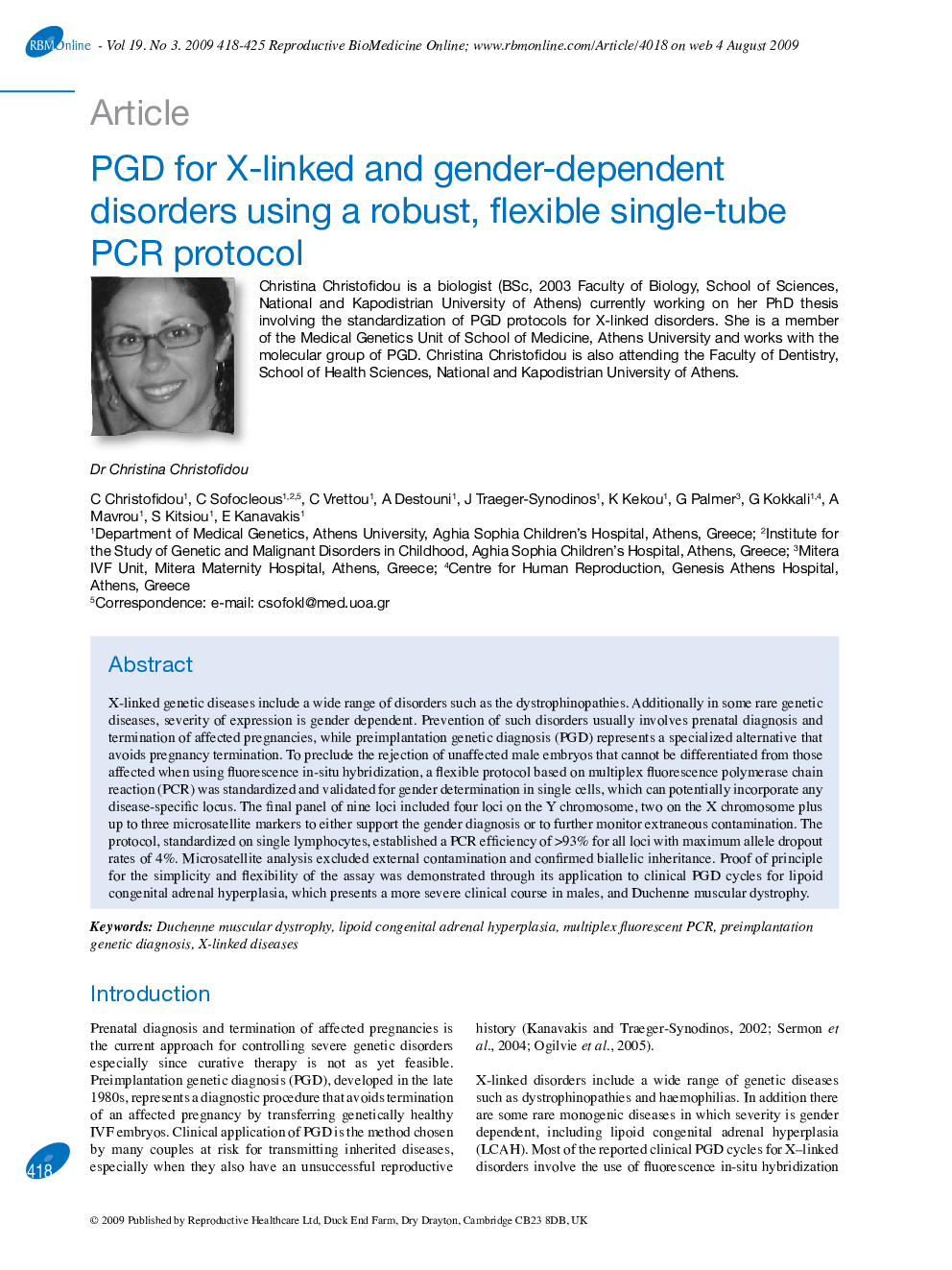| Article ID | Journal | Published Year | Pages | File Type |
|---|---|---|---|---|
| 3971839 | Reproductive BioMedicine Online | 2009 | 8 Pages |
X-linked genetic diseases include a wide range of disorders such as the dystrophinopathies. Additionally in some rare genetic diseases, severity of expression is gender dependent. Prevention of such disorders usually involves prenatal diagnosis and termination of affected pregnancies, while preimplantation genetic diagnosis (PGD) represents a specialized alternative that avoids pregnancy termination. To preclude the rejection of unaffected male embryos that cannot be differentiated from those affected when using fluorescence in-situ hybridization, a flexible protocol based on multiplex fluorescence polymerase chain reaction (PCR) was standardized and validated for gender determination in single cells, which can potentially incorporate any disease-specific locus. The final panel of nine loci included four loci on the Y chromosome, two on the X chromosome plus up to three microsatellite markers to either support the gender diagnosis or to further monitor extraneous contamination. The protocol, standardized on single lymphocytes, established a PCR efficiency of >93% for all loci with maximum allele dropout rates of 4%. Microsatellite analysis excluded external contamination and confirmed biallelic inheritance. Proof of principle for the simplicity and flexibility of the assay was demonstrated through its application to clinical PGD cycles for lipoid congenital adrenal hyperplasia, which presents a more severe clinical course in males, and Duchenne muscular dystrophy.
